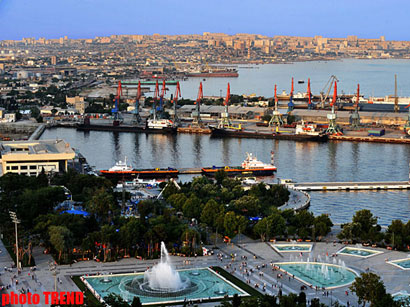Azerbaijan, Baku, Aug. 10 / Trend I.Khalilova /
For the development of Islamic banking in Azerbaijan it's planned to use technical support of the Islamic Development Bank (IDB).
Initially, the development of amendments in national legislation to expand the use of banking services on the Shariah principle was envisaged by the consultant of the International Bank of Azerbaijan (IBA) - a consortium of companies Salans, KPMG, Pinsent Masons and the Dar al Shariah.
However, as the IBA told Trend on Friday, the consultant will prepare its own vision and recommendations, and a further phase of the project will be implemented in conjunction with the Central Bank of Azerbaijan and the IDB, as this financial institution is the flagship of Islamic banking worldwide.
"This is a political issue, and therefore participation in this process of private companies is not considered valid. Because Azerbaijan is a member of the IDB, the matter will be resolved at the country level," a source at the bank said.
The Salans, KPMG, Pinsent Masons and the Dar al Shariah consultant has been involved in a project to create a specialized structure in the IBA and the introduction of Islamic products and services.
The source said that after the approval of the structure in the IBA by a consultant from the first quartet of internationally recognized audit firms will be selected. Funding for this work is provided by the IDB support.
"The Salans, KPMG, Pinsent Masons and the Dar al Shariah consultant has already prepared its recommendations on which we are working now. Changes are envisaged in the Tax Code, Civil Code, the Law On Banks, Customs Code," the source said.
There is a special order of taxation of Islamic financial instruments, forms and methods of regulation and supervision of Islamic banks, the procedure for issuance and circulation of Islamic securities, the requirements of Islamic investment funds in the world.
For example, if an Islamic bank buys for his client a house, the financial institution must pay tax on the purchase. And when that same house is sold to the buyer, it's necessary to pay the tax again. In a typical bank there are no such problems, because the purchase and sale takes place between the owner and the buyer directly. The issue of double taxation did such funding in the West unattractive. However, the UK gave the opportunity of single taxation within Murabakha (a kind of Islamic banking product), and the arrival of new players in Europe have already said about the growing demand for non-conventional banking products.
"One of the main issues is to avoid double taxation, and under changes in tax legislation of Azerbaijan new types of solutions will be offered so that to the activities of Islamic banking are not imposed by a double taxation, as the basis for this activity is trade. If the operation in the sale and resale are taxed, it would increase costs," the source said.
It's planned to introduce in the banking legislation the concept of Islamic banking, i.e. law "On banks" will consider Islamic banking from one perspective, and the traditional banking - from the other. Banks may conduct either an Islamic or conventional banking.
According to the Islamic Corporation for Development of the Private Sector (ICD), an affiliate of the IDB, for Azerbaijan, it would be efficient to adopt a special law on Islamic finance.
"This will create an environment for the development of domestic initiative and favorable conditions for attracting foreign players, which promotes the growth and expansion of this sector," - ICD told Trend earlier.
ICD representative said the potential for the development of Islamic banking in Azerbaijan is high.
"The potential for the development of Islamic banking in Azerbaijan, as well as the need for Islamic financial institutions, products and services are high. More than 90 percent of Azerbaijan's population is Muslim, which is also an important factor," ICD representative said.
In general, in ICD representative's opinion, the development of Islamic banking in Azerbaijan will be supported by the creation at the state level of Islamic financial institutions and the promotion of foreign entities wishing to enter the local market.






